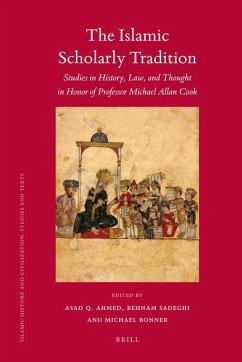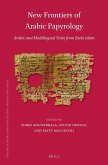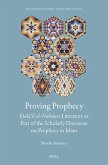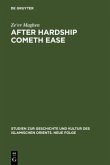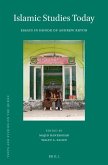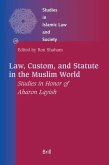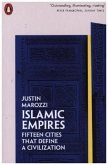The volume contains highly original articles on Islamic history, law, and thought, each either proposing new hypotheses or readjusting existing ones. The contributions range from studies in the formulation of the pre-Islamic Arabian calendar to notes on the "blood-money group" in Islamic law, and to transformations in Arabic logic in the post-Avicennan period. Prepared by former students of Michael A. Cook, to whom this volume is dedicated, these studies not only shed new light on the development of the Islamic scholarly tradition from various perspectives, but together they also represent the honoree's vast, profound, and continuing impact on the field.
This collection of highly empirical articles is intended for scholars and students specializing in various subfields within Islamic Studies.
This collection of highly empirical articles is intended for scholars and students specializing in various subfields within Islamic Studies.
"... a beautiful collection of articles."
Anna Ayse Akasoy in Ilahiyat Studies 3.2 (2012).
"Ce bel ensemble d'articles constitue non seulement undigne hommage à un grand chercheur mais aussi un témoignage de ce quepeut produire la relation de maître à élève, exemple précieux à une époque oùle marché de l'enseignement tend à se dématérialiser et à se dépersonnaliser."
J. Dean in REVUE D'HISTOIRE ET DE PHILOSOPHIE RELIGIEUSES 2012, Tome 92 n° 4.
Anna Ayse Akasoy in Ilahiyat Studies 3.2 (2012).
"Ce bel ensemble d'articles constitue non seulement undigne hommage à un grand chercheur mais aussi un témoignage de ce quepeut produire la relation de maître à élève, exemple précieux à une époque oùle marché de l'enseignement tend à se dématérialiser et à se dépersonnaliser."
J. Dean in REVUE D'HISTOIRE ET DE PHILOSOPHIE RELIGIEUSES 2012, Tome 92 n° 4.

